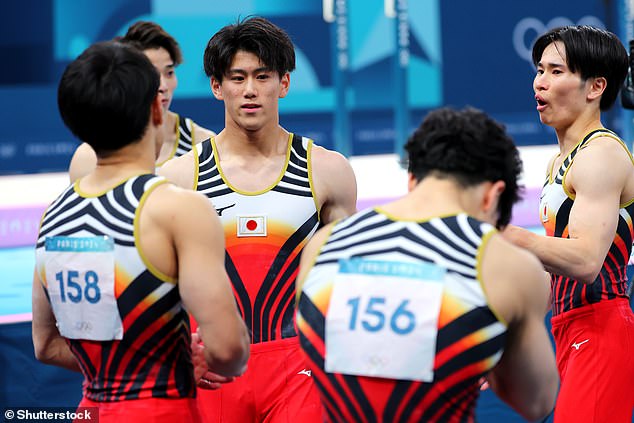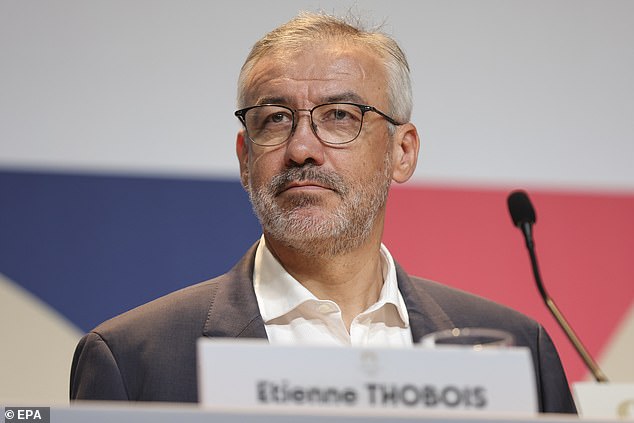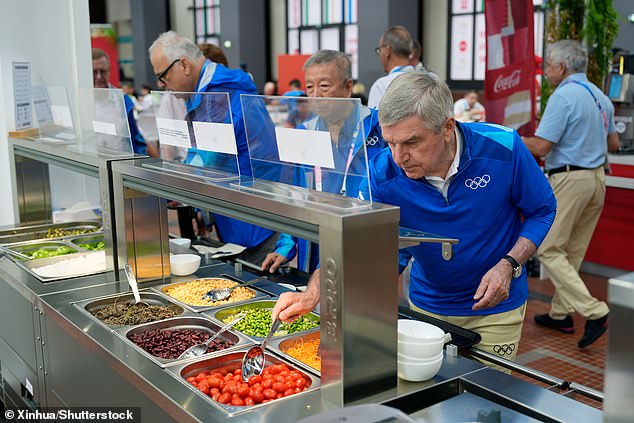- Meat and eggs will be delivered to the Olympic Village
- Athletes had meal options with fake meat at their disposal
- But the organisers have given in to pressure from the teams.
Olympic organizers bowed to pressure from athletes and ordered more than 700kg of eggs and a tonne of extra meat to replace fake meat meals and dairy-free options.
Athletes and teams were less than impressed with the food on offer at the Olympic village, just one of numerous complaints, including a lack of air conditioning, uncomfortable cardboard beds, long walks to the cafeteria and overcrowded buses that don’t arrive on time.
The organizers of the Paris Games were determined to make these the most sustainable Olympics ever, prioritizing a green approach in almost every area.
However, this aggressive focus on being environmentally friendly has resulted in atrocious conditions for competitors striving for greatness in the French capital, meaning world records have been few and far between until now.
Officials have steadfastly attempted to downplay the problems at the Olympic village, but Paris 2024 chief executive Etienne Thobois has admitted organisers have responded to the lack of food options with a huge increase in meat and eggs.
“As far as food is concerned, we had to make some changes and adapt, which is quite normal,” Thobois said.
‘We have 700 kilos of eggs and a ton of meat, which are the increases we have provided to cover the needs of the athletes.
Meat and eggs will be flown to the Olympic village in Paris

Stars were presented with fake meat options in the village, which proved unpopular.
‘We have a comprehensive approach to nutrition, designed to provide the necessary products, including organic food. We have adapted everything and it is a satisfaction for all concerned.
“We have spoken with the heads of delegation and have put the athletes at the forefront of our concerns and have adapted our services to meet the needs of the athletes.”
Organisers also relented and dropped their policy of renting air conditioning after it became clear the position was unfair to smaller nations.
Australia, Britain, Germany, Italy, Japan, the United States and China had already installed air conditioning before the Games began. COA chief executive Matt Carroll said: “We appreciate the concept of not having air conditioning because of the carbon footprint,” but added: “These are high-performance Games. We’re not going to have a picnic.”
And Paris 2024 spokeswoman Anne Deschamps said they are now allowing all teams to bring their own air conditioning.

Paris organiser Etienne Thobois admitted he had heard the complaints.
“We have found a balance between the long-term responsibility of the athletic village of a model district with all the (green) innovations and our short-term responsibility of providing high-performance athletes with the best conditions,” he said.
Australian swimming queen Ariarne Titmus described the conditions as “ridiculous” and said it played a role in her losing a world record in the 800m freestyle.
“It probably wasn’t the moment I thought I was capable of, but living in the Olympic Village makes it difficult to perform,” he admitted in an interview on Sunday.
“It’s definitely not built for high performance, so it’s about who can really hold it together in the mind.”


